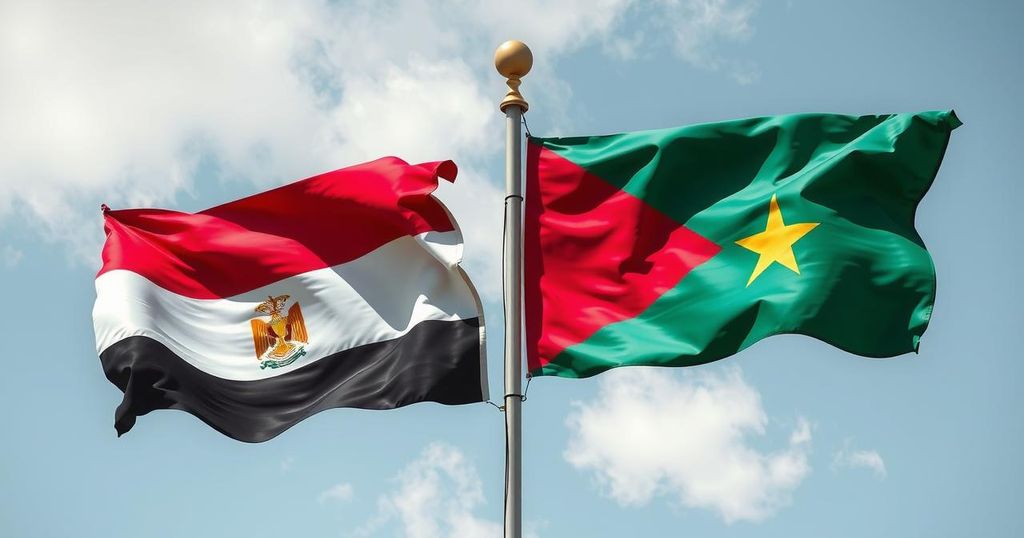Egypt, Eritrea, and Somalia Strengthen Alliance Against Ethiopian Influence

Egypt, Eritrea, and Somalia are enhancing their alliance in response to perceived Ethiopian threats in the Horn of Africa. The trilateral summit in October 2024 focused on military cooperation and counterterrorism efforts. Egypt’s concerns over the Grand Ethiopian Renaissance Dam and Ethiopia’s maritime agreements with Somaliland have driven this strategic partnership, potentially reshaping regional power dynamics.
Cairo has intensified its strategic partnership with Eritrea and Somalia, prompted by perceived threats from Ethiopia regarding regional stability and water security. In October 2024, leaders from the three nations convened in Asmara, where they discussed enhancing military cooperation and supporting Somalia’s counterterrorism measures. As part of this alliance, Egypt announced its intention to contribute troops to the African Union mission, reflecting a unified stance against Ethiopia’s growing influence in the Horn of Africa.
The evolving alliance is significantly impacted by Egypt’s ongoing tensions with Ethiopia surrounding the Grand Ethiopian Renaissance Dam (GERD). Egypt views the dam as a critical threat to its water resources, which has led to its increased collaboration with Eritrea and Somalia. Recent agreements between Ethiopia and Somaliland for maritime access have further aggravated the situation, aligning Somalia more closely with Egypt and Eritrea as a counterbalance.
Experts note that the trilateral summit represents Egypt’s strategic effort to maintain power in the region amid rising tensions over Nile water rights and maritime security in the Red Sea. This coalition has been characterized by some observers as an “axis against Ethiopia,” illustrating the complex geopolitical dynamics at play in the Horn of Africa.
Ethiopia’s endeavors to regain maritime access through its agreement with Somaliland have alarmed Somalia, which perceives this as a threat to its territorial sovereignty. Consequently, Egypt and Eritrea are enhancing their military and strategic ties with Somalia to reinforce a united front. Egypt’s tactical approach encompasses both military assistance, including arms shipments to Somalia, and the formation of a joint foreign ministers’ committee to ensure effective collaboration in various strategic areas.
As the situation unfolds, the ramifications of this newfound alliance could significantly alter the power dynamics within the region, potentially leading to greater military and diplomatic confrontations as the stakeholders navigate the contentious issues of Nile and Red Sea access.
The political landscape in the Horn of Africa is shaped by historical grievances, territorial disputes, and competition for vital resources. Egypt’s reliance on the Nile River for its water supply places it in direct conflict with upstream nations, particularly Ethiopia, which has constructed the Grand Ethiopian Renaissance Dam (GERD). This dam has escalated tensions, as Egypt perceives it as a threat to its water security. The emergence of maritime agreements involving Ethiopia and Somaliland has added another layer of complexity, prompting neighboring nations like Somalia to reconsider their alliances in favor of protecting their national interests.
In summary, the strengthening of the alliance between Egypt, Eritrea, and Somalia signifies a concerted effort to counter Ethiopia’s increasing influence in the Horn of Africa, particularly concerning water rights and regional security. The trilateral commitment to military cooperation, alongside Egypt’s promises of support for Somalia’s counterterrorism initiatives, suggests that the geopolitical landscape in this region may undergo significant changes in the near future as strategies align against perceived threats from Ethiopia.
Original Source: www.garoweonline.com








